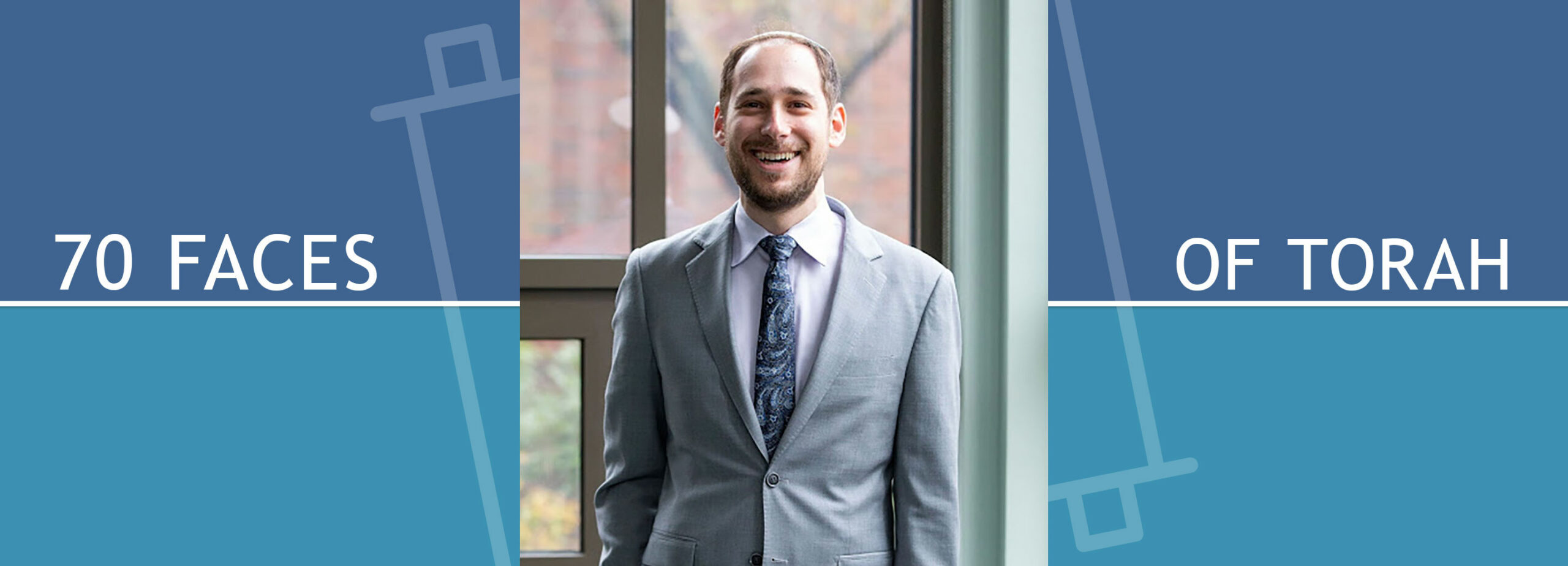Jewish learning Rejoicing in Others’ Joy

Parashat Tetzaveh Exodus 27:20-30:10
We learn this in Pirkei Avot (Ethics of Our Ancestors):
אֵיזֶהוּ עָשִׁיר? הַשָּׂמֵחַ בְּחֶלְקוֹ
Who is rich? One who is happy with what he has. (Avot 4:1)
This is a wonderful exercise in gratitude; I should strive to be content and happy with what I have now. But, what about those moments when I am jealous of what others have? In Parshat Tetzaveh, we learn that Moses’s older brother Aaron will become the High Priest. Now, it would be reasonable to think that Moses himself might become the High Priest. After all, he did lead the Israelites out of Egypt (and star in some excellent films about his life story). Alas, his brother receives the honor, and Aaron’s sons will go on to carry their father’s legacy as priests themselves.
We read in the parshah:
וְאַתָּה הַקְרֵב אֵלֶיךָ אֶת־אַהֲרֹן אָחִיךָ וְאֶת־בָּנָיו אִתּוֹ מִתּוֹךְ בְּנֵי יִשְׂרָאֵל לְכַהֲנוֹ־לִי
אַהֲרֹן נָדָב וַאֲבִיהוּא אֶלְעָזָר וְאִיתָמָר בְּנֵי אַהֲרֹן׃
וְעָשִׂיתָ בִגְדֵי־קֹדֶשׁ לְאַהֲרֹן אָחִיךָ לְכָבוֹד וּלְתִפְאָרֶת׃
[God says to Moses]: You shall bring forward your brother Aaron, with his sons, from among the Israelites, to serve Me as priests: Aaron, Nadab and Abihu, Eleazar and Ithamar, the sons of Aaron. Make sacral vestments for your brother Aaron, for dignity and adornment.
(Exodus 28:1-2, JPS Translation)
Now, you might also think that Moses was jealous of his brother, which is not unreasonable. However, in her book, Particulars of Rapture, Avivah Zornberg offers a teaching from Midrash Tanhuma in which both Moses and Aaron celebrated each other’s accomplishments (pp 356-7). Aaron was proud of Moses’s role in redeeming the Israelites from Egypt. In turn, Moses was proud when Aaron was honored with the High Priesthood.
Our midrash teaches:
Moses told Aaron, “God has instructed me to appoint you High Priest.” Aaron replied, “You have labored so hard on the Mishkan and I am made High Priest!” Moses replied, “As you live, even though you have become High Priest, it is as though I had become High Priest! Just as you rejoiced when I rose to greatness [when I brought the Israelites out of Egypt], so I rejoice in your greatness [as you become High Priest]” (Midrash Tanhuma, Shemini Chapter 3).
Rather than becoming envious of each other’s accomplishments, both Aaron and Moses lift up the other one’s success. Their humility and ability to see beyond their own egos is an esteemable and rare trait. Each one is able to rejoice in his brother’s accomplishment, not because it brings him status or honor, but simply because the other one is fulfilled.
Which brings me back to the opening teaching from Pirkei Avot:
אֵיזֶהוּ עָשִׁיר? הַשָּׂמֵחַ בְּחֶלְקוֹ
Who is rich? One who is happy with what he has.
The construction of the question’s answer uses a pronoun rather than a clear identifier. This leaves enough room for creative ambiguity: exactly whose portion are we referring to? I propose a rereading:
Do not read it as “Who is rich? One who is happy with what he [the person who is happy] has.” Rather, read it as, “Who is rich? One who is happy with what he [their fellow] has!”
Imagine a world in which our tradition teaches us to rejoice in others’ simhas (joys) just as much as we rejoice in our own. Our happiness increases when we are content with our own lives and with the joys of others. May Moses and Aaron’s humility and joy for each other serve as an inspiration for each of us. May we be happy in the accomplishments and simhas of those around us, and may their simhas become our simhas.
Danny Stein (Rabbinical School ’23) is the rabbi of The Selma and Lawrence Ruben Base UWS in New York City (powered by Moishe House). Alongside his wife Tamara, they build a pluralistic Jewish community for 20s and 30s based out of their home. He is deeply passionate about helping others connect with Judaism in authentically meaningful ways. He is committed to helping others’ grow in their connections to Judaism through Torah, justice and compassion, soulful prayer, and stimulating conversations. You will most likely find Danny studying a hasidic text, rallying for justice, (re)watching “The West Wing,” or eating sushi.

